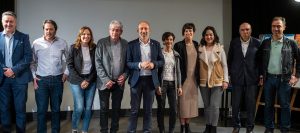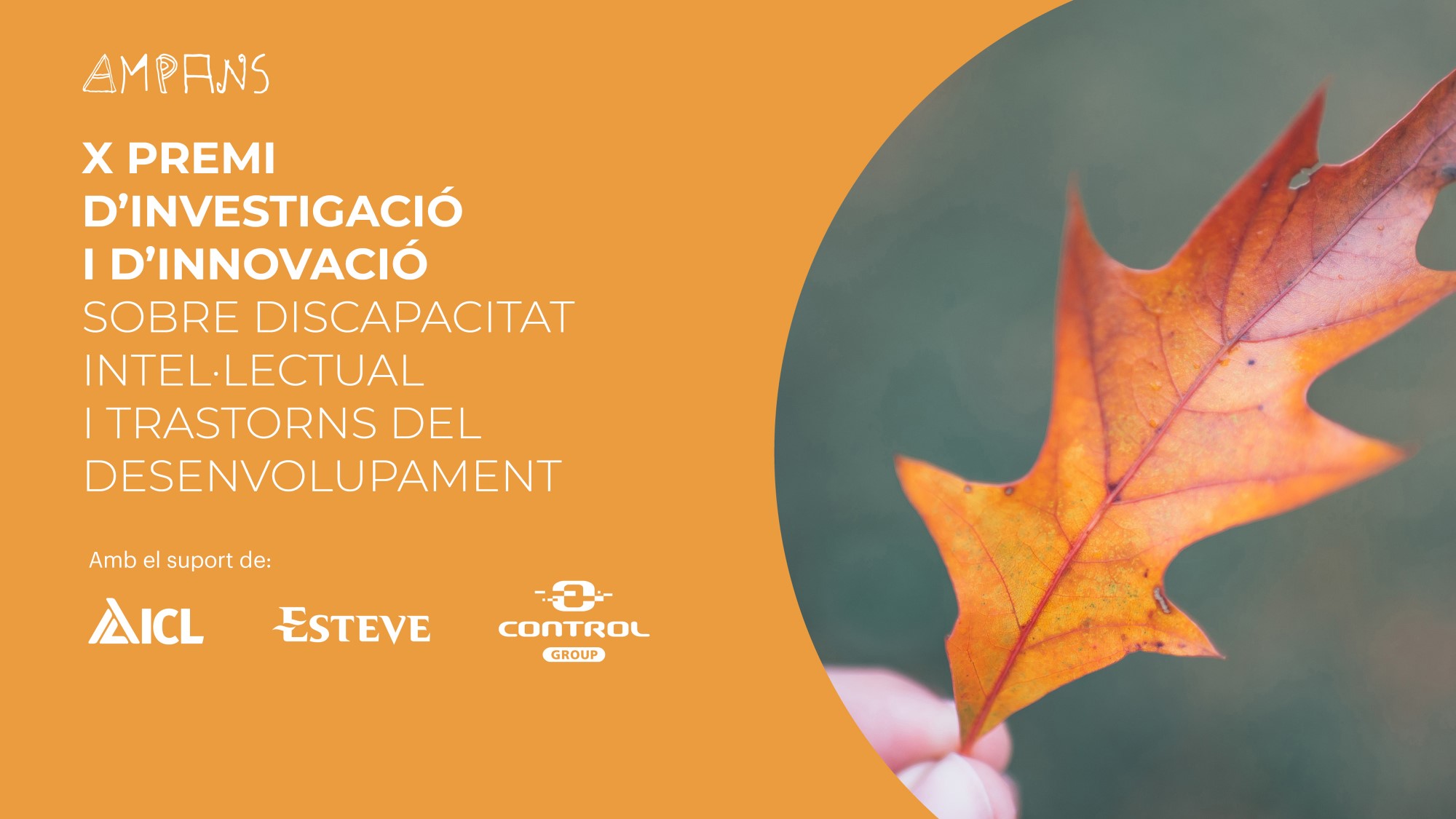AMPANS announces the Research and Innovation Award on Intellectual Disability and Developmental Disorders every two years, which recognizes the work of people, teams and entities to promote knowledge and improve the quality of life of people with intellectual disabilities intellectual and developmental disorders.
The Award contemplates two modalities: Research and Innovation.
These awards, organized by the AMPANS Foundation, are among the only ones in Spain and few in all of Europe that promote research and innovation to improve the quality of life of people with intellectual disabilities and developmental disorders.
The work can cover any aspect related to people with intellectual disabilities and/or developmental disorders.Research and innovation to improve the quality of life of people with intellectual disabilities is a right that we make possible thanks to the collaboration of companies that help us promote and recognize the work of professionals in this sector. The award has entities and companies that make the consolidation of this project possible.
Supported by:
The mission of the AMPANS foundation is to accompany and support people with intellectual disabilities or in situations of vulnerability in the development of their life project.
It is the will of the AMPANS foundation to promote knowledge and encourage innovative experiences aimed at improving the quality of life of people with Intellectual Disabilities and Developmental Disorders within the economic-cultural environment of the foundation.








In the last edition, the tenth, the event revolved around a talk/action by Quim Moya, artist and speaker. Moya spoke about art as a tool for raising awareness and empowerment, helping to highlight how research and knowledge transcend and have a direct impact on people’s quality of life.
Quim Moya, was joined on stage by Noèlia Bernal, Oriol Rojo and Nira Sunder, three artists from L’Art de Viure, a project with its own personality that we promote at the occupational centre, led a visual experience with the participation of the audience. The artists painted four artworks that, once together, formed part of the same painting, causing visual surprise among the audience. After this visual and experiential entry, AMPANS proceeded to the awards ceremony.

The sponsors support is essential for the success and continuity of the Research and Innovation Award on Intellectual Disability and Developmental Disorders. Thanks to their generosity and commitment, we are able to recognise and celebrate outstanding advances in the field of research and development. Your contribution is not only financial, but also an invaluable support to foster the constant spirit of achievement that is essential to drive significant advances for our society. Thank you for being an essential part of this journey towards a better future for people.